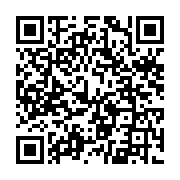The journey through medical school is one of the most rigorous academic experiences – it has certainly been a difficult one for me. For students with disabilities and chronic illnesses, particularly those with conditions like anxiety and ADHD, this journey can feel exponentially more challenging. The unique barriers students in our community face often require innovative solutions. In recent years, the intersection of technology and education has provided tools to bridge these gaps, fostering greater inclusion and success. Among these tools, AI-driven resources like Google’s NotebookLM stand out as a transformative aid for medical students, with the added benefit of providing tailored support that aligns with diverse learning needs.
For students with ADHD, staying focused during long lectures or navigating dense, text-heavy study materials can be overwhelming. Organizational challenges often compound the struggle, with missed deadlines or misplaced notes becoming unintended setbacks. Meanwhile, anxiety can heighten the already intense pressure of exams, clinical rotations, and the unrelenting demands of medical training. It may also hinder participation in group discussions or fast-paced clinical settings, where self-doubt or fear of judgment can overshadow competence. While accommodations such as extended exam time, note-taking services, or access to recordings are essential, they don’t always address the core need: enabling students to engage with the material in a way that aligns with their unique learning styles.
Artificial intelligence is reshaping how students interact with educational content, offering solutions that are adaptable, accessible, and inclusive. Google’s NotebookLM, an innovative AI tool, is a prime example of how technology can enhance learning for medical students, particularly students with anxiety or ADHD, in addition to others with diverse learning needs.
NotebookLM works by transforming study notes into interactive, AI-generated content, including podcasts. This feature is invaluable for students who learn best through auditory processing or those seeking an alternative modality to reinforce their knowledge. By turning dense medical concepts into digestible, audio-based formats, NotebookLM makes learning more engaging and less overwhelming.
For medical students, and particularly students with ADHD, the ability to convert notes into a podcast format can bridge the gap between distraction-prone study sessions and productive, immersive learning. Similarly, students with anxiety may find the podcast format less intimidating than sitting down to confront a massive textbook, allowing them to absorb information at their own pace in a low-pressure environment.
The value of multimodal learning cannot be overstated and is worthy of highlighting for students in our community. Engaging with material in different formats—written, visual, and auditory—enhances retention and comprehension while accommodating diverse needs. This approach aligns with universal design principles, which advocate for flexible learning environments that benefit all students.
The integration of AI tools like NotebookLM is not just a technological advance—it’s an act of advocacy for inclusivity in medical education. MSDCI students bring valuable perspectives, resilience, and empathy to the medical field, yet they often face systemic barriers that impede their success. By embracing tools that cater to diverse learning styles, medical schools can better support these students, ensuring that their potential isn’t lost to a one-size-fits-all approach.
As the medical community strives to cultivate a diverse and inclusive workforce, the value of innovative, AI-driven tools cannot be ignored. NotebookLM and similar technologies have the power to democratize learning, enabling medical students with disabilities and chronic illnesses to thrive. By recognizing our unique needs and championing solutions that address these needs, we can create a more equitable and supportive environment in medical education.
The future of medicine depends on the success of all its students, including those whose paths may look a little different. With the help of AI and the collective advocacy of educators, institutions, and peers, we can ensure that no aspiring doctor is left behind.
